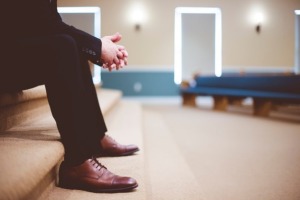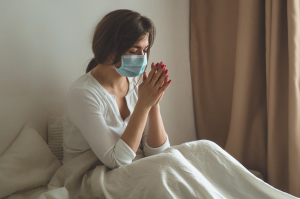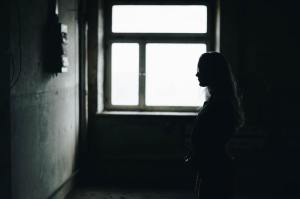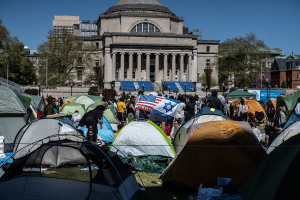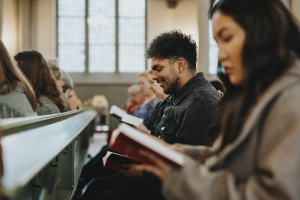Safe harbor or perilous voyage? The Mayflower dilemma at 400

The recent election is certainly one of the most tumultuous in American history. Citizens across the political spectrum are worried about the American ship of state and whether or not she is seaworthy for what looks to be a perilous journey into the future. And yet, perilous voyages into the unknown by courageous adventurers are defining of the American story and our collective identity as a people.
This month marks the 400th anniversary of one such voyage – the landing of the Mayflower Pilgrims at Cape Cod, Massachusetts.
Pilgrim leader William Bradford recorded the fears of those early immigrants unsettled by the prospect of removing themselves across the Atlantic. Such an endeavor would be “subject to many unconceivable perils and dangers,” the detractors observed. The New World had much to fear: “famine” and “want” not to mention “grievous diseases.” Yet so important was freedom to worship according to their consciences that howsoever reasonable such objections might have been, they were not enough to ultimately deter the Pilgrims.
It was religious freedom that made the pilgrims flee, first to Holland, and then to America. Bradford is not subtle on this point, and neither is he shy about critiquing those who preferred safety to liberty: “For many, though they desired to enjoy the ordinances of God . . .yet (alas) they admitted of bondage with danger of conscience, rather than to endure these hardships.” They preferred the safety of the harbor to the perilous voyage to freedom.
Like the Pilgrims who landed at Plymouth Rock, Americans once again find ourselves in times when “all great and honorable actions are accompanied with great difficulties and must be both enterprised and overcome with answerable courages,” as Bradford described. Four centuries later, the world is no less fraught with dangers to body and soul.
COVID-19 and public health measures in response present challenges to American liberty. Like the Pilgrims, believers of all kinds find their religious activities subject to regulations that not only fail to distinguish between orderly, gathered communities of committed worshippers and the irregular gatherings of strangers in other public places but that absurdly prefer the frequently disorderly and mobile groupings of protestors.
Although the United States is a signatory to the COVID-19 and Religious Minorities Pandemic Statement and official CDC guidelines recognize “a fundamental right to gather for worship,” governors in a number of states have adopted policies that impose a higher burden on worship services than other types of gatherings. Colorado, California, and New York, for example, have imposed lower capacity limits on churches than on businesses and restaurants, restricting the number of individuals who can attend indoor services (regardless of the actual capacity of the setting). California’s guidelines also state that places of worship “must…discontinue indoor singing and chanting activities,” despite the fact that such activities are often central to the actual exercise of any given religion. At the same time, public officials like New York Governor Andrew Cuomo and Washington, D.C.’s Mayor Muriel Bowser repeatedly made public statements expressing support for the mass public protests held throughout the country.
Yet few religious leaders or lay persons have dissented. While there have been a handful of lawsuits by religious group, the vast majority of American worshippers from all backgrounds have attempted to accommodate their religious practice to the state orders.
Americans now live with and can understand the tension between safety and freedom: at the behest of our political leaders, we are practicing social distancing, wearing masks, engaging with one another through “contactless” and virtual exchanges —modifying our behavior and even our worship in ways that are sure to have repercussions long after the pandemic has passed. Within neighborhoods, communities of faith, and even extended families, we find ourselves in sometimes heated disagreements about questions that cut to the core of our understanding of what it means to be free, to be courteous, or to be responsible. Yet whether we share the faith of the Pilgrims, adhere to a different faith, or hold to none at all, we would do well to remember that when physical safety is our highest priority, we necessarily close ourselves off from the ability to encounter the transcendent.
This is antithetical to the spirit of 1620, a repudiation of those courageous individuals who traversed the rough Atlantic for the sake of the freedom to practice their faith. Risk is the necessary companion to freedom and the Pilgrims — brave enough to endure a perilous late-season ocean crossing and to forge a settlement in an unfamiliar and at times, hostile, environment — an inspiring reminder of the potential rewards of setting out into the unknown.
Despite our historical and religious distance from the Pilgrims, this lesson — the embrace of personal courage even in the face of danger to voyage for freedom is one that ought to resonate in our times.
Sarah A. Morgan Smith is a fellow of the Ashbrook Center at Ashland University, co-director of the center's Religion in American History and Politics project, and an affiliated scholar of the Faith and Liberty Discovery Center in Philadelphia, Pennsylvania.
















